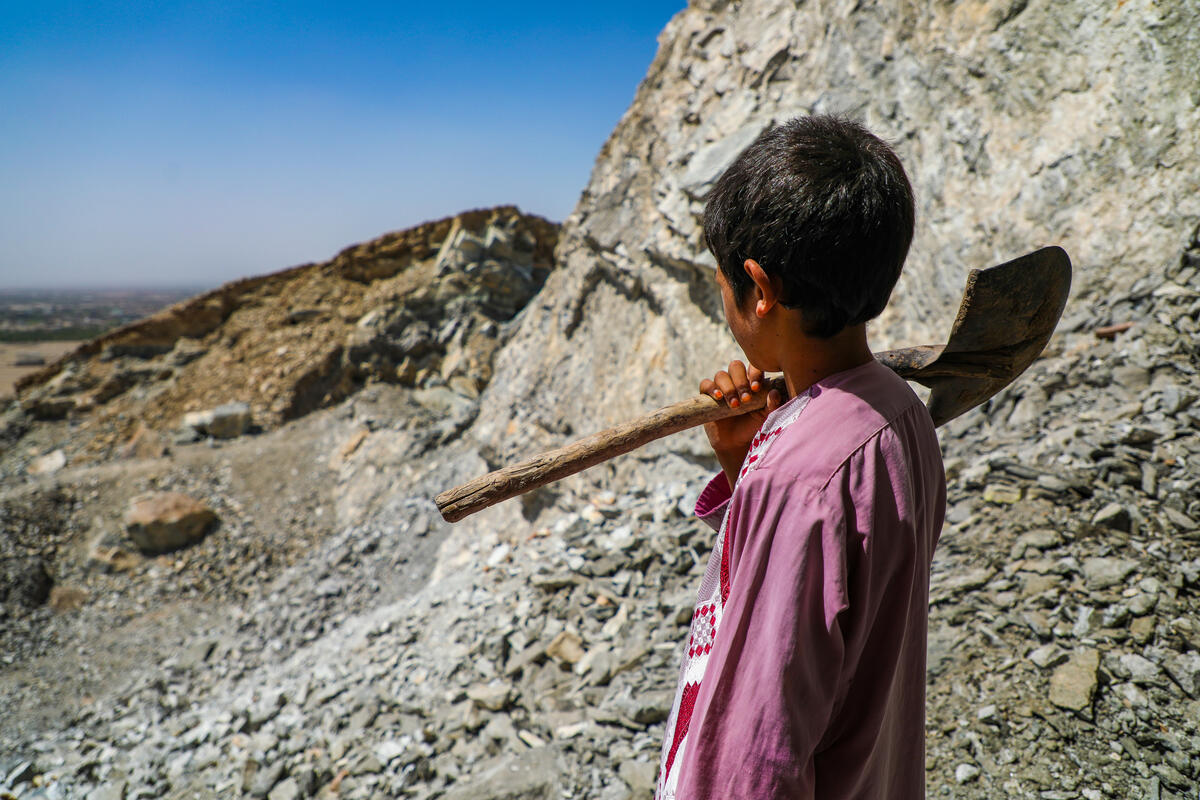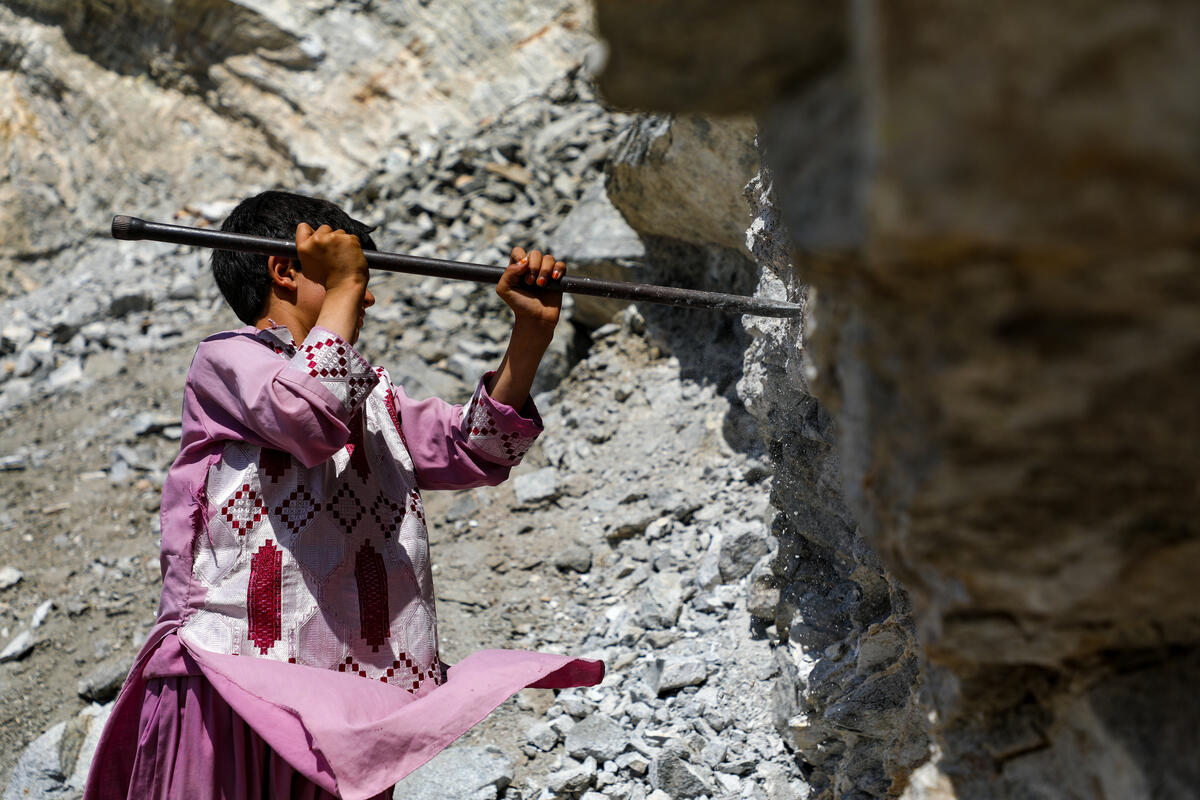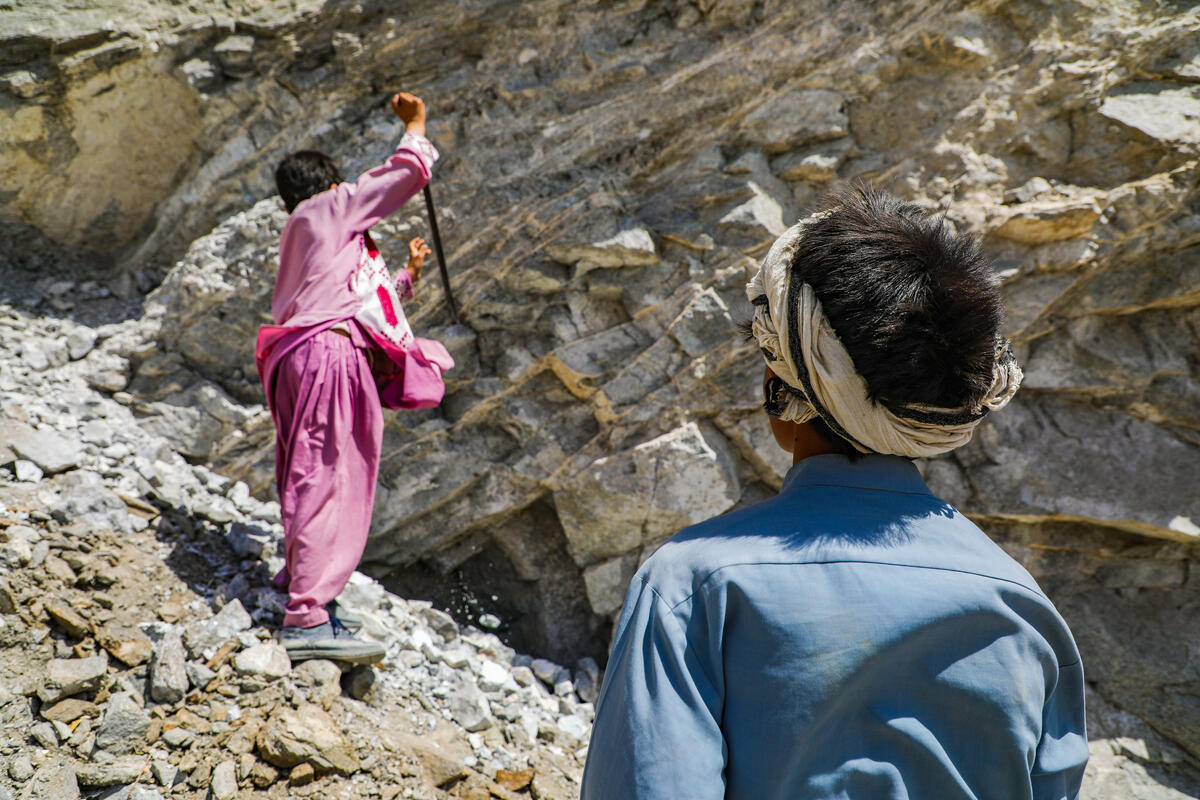
Food insecurity
In Afghanistan 15.3 million people are not able to easily access nutritious food – 9 in 10 households don't eat enough.


Fighting hunger and malnutrition
We all need energy from nutritious food to keep our bodies healthy. The longer we have to wait for food, the less well we function.
Imagine having to go days without a proper meal – and even then, not a satisfying one. How would you manage? You’d be tired and lethargic. You’d probably struggle to keep your focus. You might be in pain. Without essential nutrients, your body would struggle to function properly.
Sadly, right now, and even in the UK, families are being forced to skip meals or eat less-than-nutritious food. Worldwide, as many as 783 million people are facing hunger and more than 3.1 billion are unable to afford a healthy diet.
In some countries, children have to work in order for their families to afford to eat.
Twelve-year-old Mujeb* from Afghanistan is the sole breadwinner for his family. If he doesn’t work, his family don’t eat.
“My father is sick, if I don’t work, we will stay hungry . . .”
So, every morning, instead of going to school Mujeb heads to the mountain with his friend to dig and break stones. Not only is he missing out on critical years at school, but the work itself is dangerous. The rocks he mines are too heavy for a young boy to carry and the impact his digging has on the mountain could trigger a rockfall.
Hidden away on the mountain, tired, working in the scorching sun, Mujeb breathes in the dust from the broken stones and fears that one day a rock will fall on him.
At a very young age, Mujeb had his childhood stolen from him. Instead of waking up to play and learn with his peers, he bears the heavy emotional and physical burden no child should ever have to carry – providing the next meal for his family.
In many contexts, long hours and high-risk working environments guarantee higher pay and protective gear. This is not the case for Mujeb, who puts his life on the line and splits his daily wages with another boy working alongside him — leaving him with barely enough for the essentials.
“I have been working together with my friend for about three or four years,” explains Mujeb. “The weather is so hot that my head gets hot, and sometimes when I break rocks, my nose bleeds, and it becomes very difficult for me to break the stone . . . If the car comes and we load it, he will give us 700 Afghanis [£6.50], which we divide between me and my friend and use that money to buy flour and rice for our families . . . I wish I was at school at this moment. And my dream is to become a teacher in the future, but if I work here, how can I achieve my dream?”
*Name changed to protect identity
Tragically, this is not an isolated story. Children in Afghanistan continue to face crisis after crisis. Natural disasters like drought and earthquakes, as well as economic and social crises, have left millions of Afghan families without access to enough food, regular income, or protection.
Persistent drought, Covid, and years of conflict have collectively contributed to a severe food insecurity crisis in Afghanistan. The situation has been made worse by skyrocketing food prices due to the conflict in Ukraine. Malnutrition in children has increased, as parents don't have access to enough nutritious food for their children.
Furthermore, Afghanistan is grappling with a water crisis, which has left communities struggling to obtain sufficient water for livestock, agriculture, and basic needs such as drinking and hygiene.
Without peace and humanitarian access, Afghanistan’s children are at significant risk of violence, neglect, abuse, exploitation, starvation and malnutrition. Situations like child marriage, child labour, family separation, and mass displacements — as families leave in search of food — are all likely to worsen.
But thankfully, you are helping children, like Mujeb. You are supporting hunger relief efforts for children living in the world’s toughest places.
Together we can commit to tackling and ending child hunger, so no child has to work in order that they and their family can eat.
With your support, World Vision is making a long-term commitment to tackle child hunger. This is just part of what we’ve achieved so far:
In the midst of hunger, conflict, natural disasters, and displacement, your ongoing support makes it possible to reach children and families with what they most need, helping them survive, recover from trauma and build a future.

